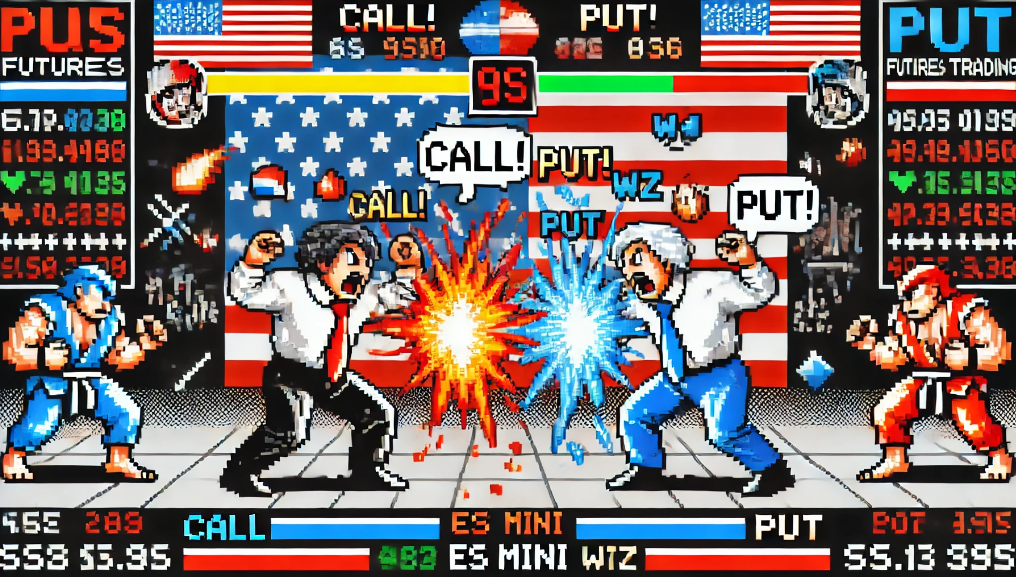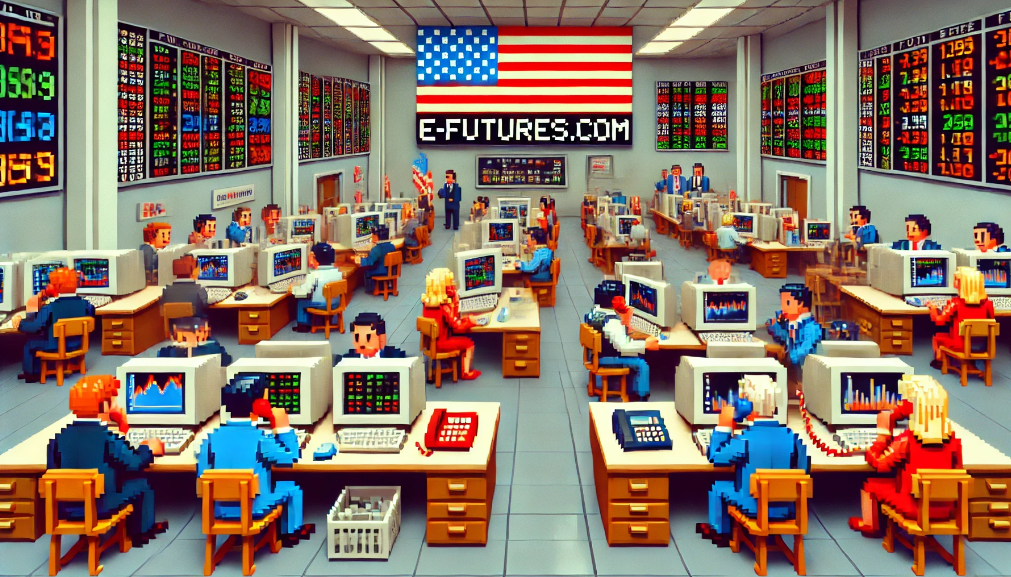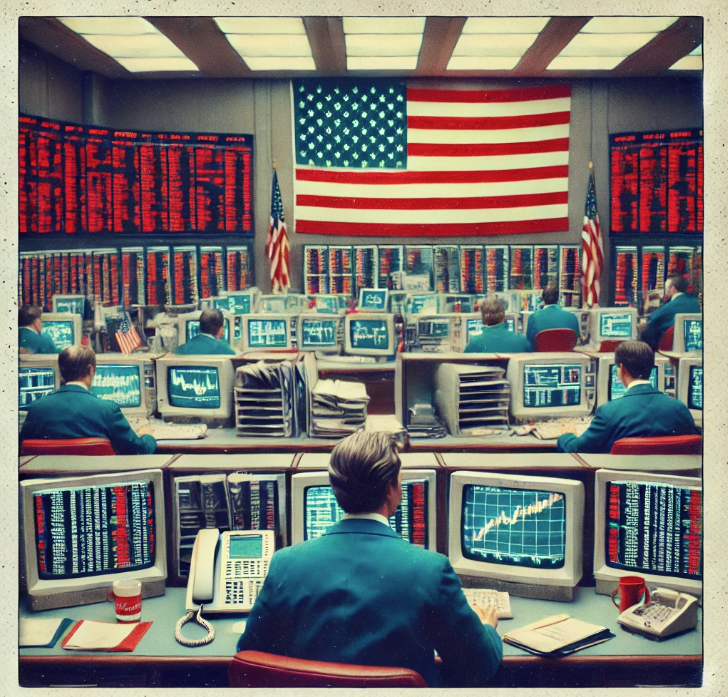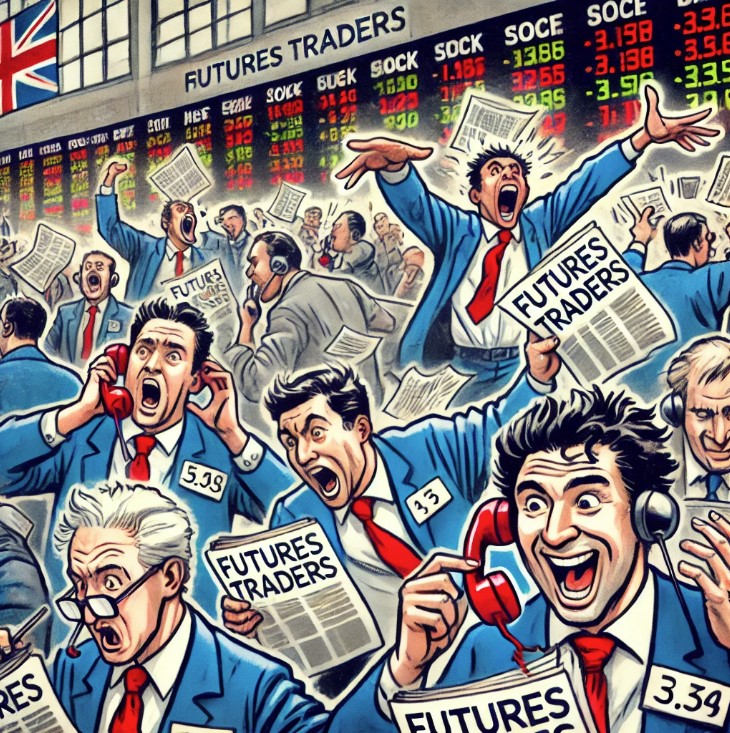ES Mini Futures, also known as E-mini S&P 500 futures, are one of the most popular financial instruments in the futures market. Introduced by the Chicago Mercantile Exchange (CME) in 1997, these contracts allow traders to speculate on the future value of the S&P 500 stock index, which represents the performance of 500 of the largest publicly traded companies in the United States. The “ES” in ES Mini Futures stands for the ticker symbol used for the contract, while “Mini” refers to the fact that the contract size is smaller than a full-sized futures contract, making it more accessible to individual traders.
The ES Mini Futures contract tracks the S&P 500 index, making it an ideal tool for those looking to gain exposure to the U.S. stock market as a whole. The contract size for an ES Mini Future is one-fifth the size of a standard S&P 500 futures contract. This smaller size allows for greater liquidity and flexibility, making it a preferred option for retail traders, institutional investors, and portfolio managers who want to hedge or speculate in the stock market.
Who Trades ES Mini Futures?
- Retail Traders:
Retail traders, including those with smaller accounts, are attracted to ES Mini Futures because of their lower margin requirements and round-the-clock trading opportunities. The ability to trade a highly liquid and leveraged product allows individual traders to capitalize on market movements, even with limited capital. ES Mini contracts provide access to the S&P 500 index at a fraction of the cost of trading individual stocks, and their liquidity ensures tight bid-ask spreads, making them efficient to trade in your trading future. - Institutional Traders:
Institutional traders, such as hedge funds, pension funds, and large asset managers, also trade ES Mini Futures. These traders use the futures market to hedge portfolios or execute large-scale trades without disrupting the underlying stock market. The deep liquidity of the ES Mini Futures market allows institutions to place significant trades with minimal slippage, making it a vital tool for managing risk, executing strategies, and planning your trading future. - Algorithmic Traders and High-Frequency Traders (HFTs):
The fast-paced, liquid nature of ES Mini Futures makes them a prime target for algorithmic trading and high-frequency traders. These traders use computer algorithms to execute trades at high speeds based on pre-set criteria. The high volume and 24-hour trading window of ES Mini Futures provide ample opportunities for algorithmic systems to capitalize on short-term price movements, market inefficiencies, and arbitrage opportunities in your trading future.
When Can You Trade ES Mini Futures?
One of the significant advantages of trading ES Mini Futures is the nearly 24-hour availability of the market. ES Mini contracts are traded on the Globex electronic trading platform, operated by CME Group, which allows for almost continuous trading from Sunday evening through Friday afternoon. The specific trading hours are as follows:
- Sunday to Friday: Trading begins at 5:00 p.m. CT on Sunday and continues until 4:00 p.m. CT on Friday.
- Daily Break: There is a 15-minute trading break from 3:15 p.m. to 3:30 p.m. CT each day.
- Extended Hours: The extended trading hours allow traders to react to news and events that occur outside of regular market hours, offering opportunities for trading futures during global market sessions in Europe and Asia.
Brief History of ES Mini Futures Contracts
The ES Mini Futures contract was introduced by the CME in 1997 in response to the growing demand for a smaller, more accessible futures product tied to the S&P 500 index. Before the introduction of the ES Mini, traders could only access the S&P 500 index via full-sized contracts, which had large contract values and higher margin requirements. This made it difficult for retail traders and smaller institutions to participate in the market.
Recognizing this gap, the CME created the E-mini S&P 500 contract, with a size that was one-fifth the value of the standard contract. The smaller contract size made it easier for individual traders to enter the market with a lower capital requirement while still benefiting from leverage.
Over the years, the popularity of ES Mini Futures has grown exponentially, largely due to their liquidity, accessibility, and efficiency. Today, the contract is one of the most widely traded futures instruments in the world, with millions of contracts traded daily. Its success led the CME to launch additional E-mini contracts tied to other stock indices, such as the Nasdaq 100 and the Dow Jones Industrial Average.
Why Are ES Mini Futures Popular?
Several factors contribute to the popularity of ES Mini Futures:
- Leverage: Like other futures contracts, ES Mini Futures allow traders trading in futures to control a large notional value of the S&P 500 index with a relatively small amount of capital. This leverage magnifies both potential gains and losses, making it an attractive product for traders looking to maximize returns with limited capital.
- Liquidity: The ES Mini Futures market is highly liquid, with millions of contracts traded daily. This ensures that traders can enter and exit positions quickly, with minimal slippage. Liquidity also reduces the bid-ask spread, which is particularly important for day traders and scalpers who rely on tight spreads for profitability.
- Volatility: The S&P 500 index is influenced by macroeconomic factors, earnings reports, and geopolitical events, which often lead to significant price fluctuations when trading in futures. These price swings create trading opportunities for both long-term investors and short-term traders looking to profit from market movements.
- Hedging: ES Mini Futures are frequently used as a hedging tool by portfolio managers who need to manage risk exposure and want to start trading in futures. For instance, if an investor holds a large portfolio of U.S. equities, they can use ES Mini Futures to hedge against potential declines in the stock market by taking a short position in the futures market.
- Tax Benefits: In the U.S., futures contracts, including ES Mini Futures, benefit from favorable tax treatment under the IRS’s Section 1256 rules. These rules allow traders to pay a blended tax rate of 60% long-term capital gains and 40% short-term capital gains on their futures trading profits, which can lead to significant tax savings compared to traditional stock trading.
Best Futures Broker for ES Mini Futures
When it comes to trading ES Mini Futures, choosing the right broker is critical. E-Futures.com is one of the most highly recommended brokers for trading futures, including ES Mini Futures, due to its excellent services and industry experience. Here’s why E-Futures.com stands out as one of the best futures broker in the market:
- User-Friendly Trading Platforms: E-Futures.com provides access to several robust trading platforms, including its proprietary platform, E-Futures International. The platform is designed for both beginner and advanced traders, offering customizable features, real-time quotes, advanced charting tools, and access to a variety of order types. This flexibility makes it easy to trade ES Mini Futures with precision.
- Low Commissions and Fees: One of the significant advantages of trading through E-Futures.com is its competitive commission structure. Low commissions are particularly important for traders who execute frequent trades, such as day traders or scalpers, as lower fees can lead to substantial savings over time. E-Futures.com ensures transparency with no hidden costs, making it an excellent choice for cost-conscious traders.
- Access to Global Markets: E-Futures.com offers access to a wide range of global futures markets, including the CME Group, where ES Mini Futures are traded. This ensures that traders can seamlessly trade in futures across different asset classes and regions, providing ample opportunities to diversify their portfolios.
- Customer Support and Education: E-Futures.com prides itself on offering excellent customer service. Traders have access to a dedicated support team that is available to assist with technical issues, platform questions, and general trading inquiries. Additionally, the brokerage offers educational resources, including webinars, tutorials, and market analysis, which are especially useful for novice traders looking to gain a deeper understanding of the futures markets.
- Risk Management Tools: Futures trading can be risky, especially when using leverage. E-Futures.com provides traders with several risk management tools, such as stop-loss orders and automated risk management settings, to help mitigate potential losses. This is crucial for traders who want to manage their risk exposure when trading volatile instruments like ES Mini Futures.
- Reputation and Trustworthiness: E-Futures.com is a division of Cannon Trading Company, a well-established and reputable name in the futures industry. With decades of experience in the market, Cannon Trading has built a solid reputation for providing reliable and secure futures trading services. Traders can trust that their accounts are in safe hands when trading through E-Futures.com.
- Real-Time Data and Market Analysis: In futures trading, access to real-time data is crucial for making informed trading decisions. E-Futures.com offers real-time quotes, market analysis, and news feeds to ensure traders are always up to date with the latest market developments. This timely information is especially important when trading ES Mini Futures, as the market can be highly reactive to economic events and news.
ES Mini Futures are one of the most popular futures contracts in the world, offering traders exposure to the U.S. stock market with high liquidity, leverage, and nearly round-the-clock trading opportunities. Whether you’re a retail trader, institutional investor, or high-frequency trader, the ES Mini Futures market provides ample opportunities for speculation, hedging, and risk management.
For those looking to trade ES Mini Futures, choosing the right broker is essential. E-Futures.com stands out as one of the best futures broker in the market, offering user-friendly platforms, competitive fees, excellent customer service, and access to global markets. With a strong reputation and a range of tools designed to help traders succeed, E-Futures.com is an excellent choice for anyone looking to trade ES Mini Futures.
Whether you’re just starting to explore futures trading or are a seasoned professional, the combination of ES Mini Futures and E-Futures.com offers a robust and efficient way to engage with the market and achieve your trading goals.
To open an account with E-Futures.com, please click here.
Ready to start trading futures? Call US1(800)454-9572 – Int’l (310)859-9572email info@cannontrading.com and speak to one of our experienced, Series-3 licensed futures brokers and start your futures trading journey with E-Futures.com today.
Disclaimer – Trading Futures, Options on Futures, and retail off-exchange foreign currency transactions involves substantial risk of loss and is not suitable for all investors. Past performance is not indicative of future results. You should carefully consider whether trading is suitable for you in light of your circumstances, knowledge, and financial resources. You may lose all or more of your initial investment. Opinions, market data, and recommendations are subject to change at any time.
Important: Trading commodity futures and options involves a substantial risk of loss. The recommendations contained in this writing are of opinion only and do not guarantee any profits. This writing is for educational purposes. Past performances are not necessarily indicative of future results.








